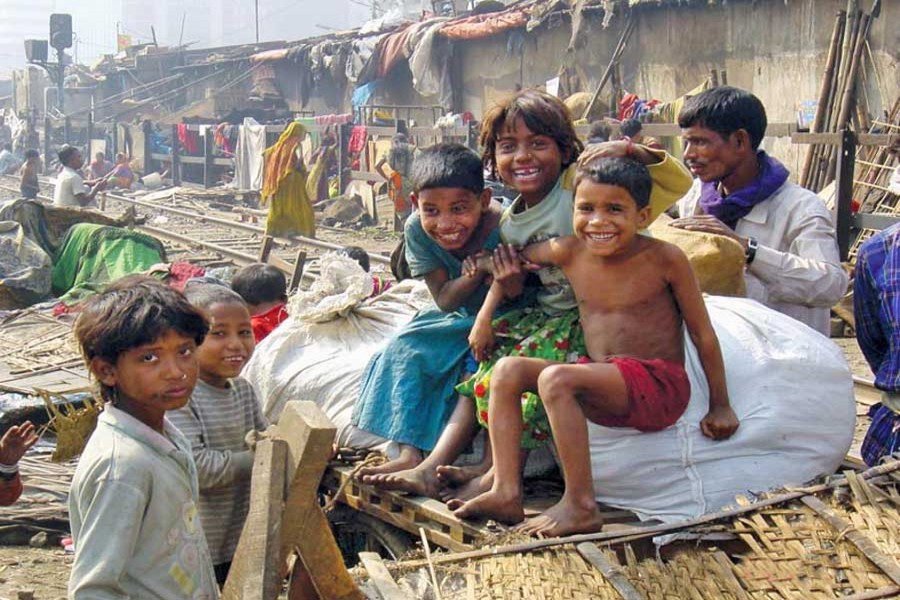
Published :
Updated :

In what appears as an upsetting revelation, a BBS (Bangladesh Bureau of Statistics) survey has found that a large number of children who left their village homes facing acute poverty for big cities do not want to go to rehabilitation centres, nor even reunite with their families. The reasons underlie a lack of freedom, family disputes, and surprising of all, unwillingness of their families to accept them for want of space at home. The BBS conducted the survey on April 04-23 last year with 7,200 samples across the country's eight divisions and two city corporations in Dhaka. Among the street children, some 82 per cent were boys and 18 per cent girls. The number of street children was the highest in Dhaka South City Corporation (DSCC)--22.7 per cent, followed by Dhaka North City Corporation (DNCC)--18.3 per cent, the survey noted. It found that 37.8 per cent of these children left their homes in a desperate bid to escape poverty and hunger, 15.4 per cent due to parents' migration to urban areas, 12.1 per cent for exploring work opportunities, 5.0 per cent for lack of custodians, and 3.6 per cent in search of a better prospect in city locations.
One plausible recourse could be to bring them to rehabilitation centres but unwillingness of a major segment of the these hapless children tells a sorry tale that the authorities need to take on seriously to get things right. According to the survey, 72 per cent of these children do not want to go to rehab centres, while the remaining 28 per cent want to. Among the major reasons for their reluctance, 79.2 per cent of the children stated absence of enough freedom, 43.3 per cent disliked following rules and regulations, 37.8 per cent felt their own needs would not be met there, 31.9 per cent felt they could not move freely with their friends. On the flip side, however, there is a sobering note in that some 66.8 per cent of the children have plan to change their street-life through better job/work, 27.9 per cent want to attend school, 23 per cent want to try small businesses, 13.7 per cent want to return home, the survey found.
In this context, it may be noted that a BIDS (Bangladesh Institute of Development Studies) survey in 2015 showed that there were over 1.5 million street children in Bangladesh, suggesting the number could rise to 1.6 million by 2024. Echoing the same guess, UNICEF has said its experts fear the number of children living on the streets in Bangladesh could be in the millions.
No doubt, the BBS survey is an eye-opener in many respects, and given the state things are in, a lot has to be done. While rehabilitation centres do come to mind first, the relevant state agency should mind its business by way of motivating the children for a better life ahead. Also, the NGOs can find it highly rewarding to do something meaningful for the ill-fated children.


 For all latest news, follow The Financial Express Google News channel.
For all latest news, follow The Financial Express Google News channel.